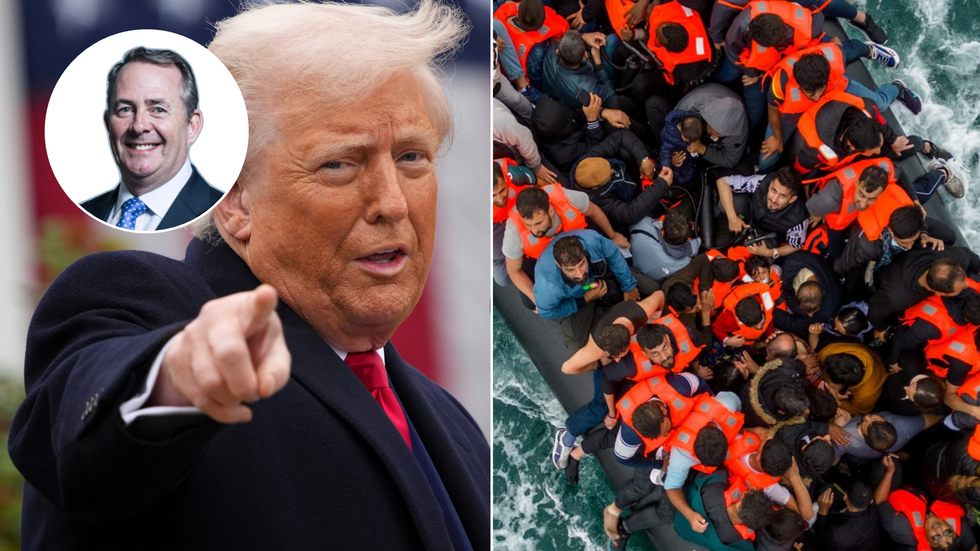Shankar Singham discusses Donald Trump's tariffs - WATCH
GB News
OPINION: One of the greatest worries about the American measures is one of unintended consequences
Don't Miss
Most Read
Trending on GB News
Whatever you think about President Trump's tariffs, one fact in the United Kingdom is inescapable. Compared to our European counterparts, Britain will be less affected because of Brexit.
During the last round of tariffs in the first Trump administration, the UK was caught up in the collective trap of the EU's customs union. If the British people had not voted to leave the European Union, we would be paying 20 per cent tariffs to export British goods to the USA now rather than the 10 per cent we face.
It is a huge difference in a difficult environment which could have powerful implications for British companies.
When you add to this the fact that a large proportion of the goods we export to the United States, pharmaceuticals, will be exempt from the tariffs you can see why ministers are adopting a highly contorted approach, not willing to aggravate the US but desperate to throw some anti-Trump rhetoric to their anti-American left.
On top of that, there is the total irony of hyper-remainers such as Keir Starmer using their Brexit freedoms to their advantage but finding it physically impossible to utter the word.

Buckle up: Donald Trump's tariff war could be about to turbocharge Britain's small boast crisis
Getty Images
On the face of it, Donald Trump had at least something of a point. Protectionism among the world's richest nations has grown rapidly in recent years. In 2009 only 0.7 per cent of all the imports coming into the G 20 countries were covered by a restrictive measure i.e. a tariff or a nontariff barrier. By 2020 that had grown to an astonishing 10.3 per cent, a 10-fold increase over the decade. Moreover, this has tended to occur not in monetary tariffs but in NTB's (nontariff barriers) – technical regulations or legal barriers which make trade more difficult.
Often it is a bit of environmental legislation here a bit of consumer regulation there all of which create a non-monetary hurdle to those who want to sell their goods.
The president is right that the EU is a particular culprit here, but this is not the problem that the current US solution is set to target.
Detailed analysis does not show a complex methodology designed to deal with the issues of either overregulation or "currency manipulation".
Instead, it depends on a simplistic view that countries who have a trade surplus (in goods) are "cheating" the United States. The fact that the US has a huge surplus in services with the rest of the world is completely absent from the agenda!
The strategy is clear – to force countries under duress to reach a new trade accommodation with the United States (which will eliminate America's trade deficit even if that is effectively a tax on consumer choice) or, if it fails, recoup large financial sums at the borders.
Yet, this is a high-risk strategy. First, some countries may not play ball, especially autocracies such as China who may calculate that they can withstand more pain than a government answerable to an electorate who will be vulnerable to economic disruption such as inflation, continued stock-market falls or even recession. Second, consumers may decide to alter their behaviour and avoid high price imports by reducing their overall spending meaning that any financial return on tariffs would be much diminished.
However, one of the greatest worries about the American measures is one of unintended consequences which are very seldom discussed. That is the link between global trading policy and migration. The period between 2009 and 2021 when protectionism multiplied across the globe was also a period which saw increased mass migration.
If it becomes more difficult for poor countries to trade their way out of poverty, then there will be an increased risk of social disruption and more people taking to the roads or boats to try and achieve the prosperity they can see on their mobile phones.
This is not the world of the 1890s and 19th-century solutions are unlikely to succeed in the 21st century when the global economy, including supply chains, is so interconnected. Even if it is possible to protect domestic US industrial jobs, just watch those borders!







